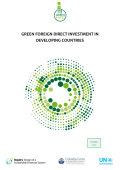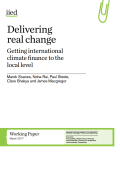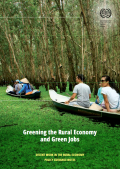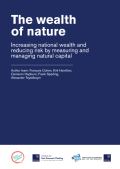
The paper Green Foreign Direct Investment in Developing Countries focuses on the actual and potential role of foreign direct investment (FDI) in achieving the transition to a low-carbon, just and sustainable world and, more specifically, FDI flows into developing countries.
There is reason to be hopeful about the potential contributions of green FDI; but real progress requires a more accurate and robust definition of “green FDI”, and stronger commitments across different layers of government and by private sector actors to ensure FDI helps address modern environmental challenges. This paper attempts to aid the effort by taking stock of where we are and highlighting potential ways forward.

The working paper Delivering real change: getting international climate finance to the local level explores the flows of climate finance within the main international climate funds, to understand how effective they are in getting finance to the local level and what design features enable or prevent local financing. It distils lessons from development funds that are experienced in local financing. It concludes by highlighting the ways in which local climate financing can be enhanced – to further improve the effectiveness of aid.

The policy guidance note Greening the Rural Economy and Green Jobs focuses on a number of areas that are at the heart of rural economies and could be engines for a sustainable economic transformation. These are: a) powering the rural economy through access to clean energy; b) revitalizing agriculture through sustainable and high productivity farming methods; c) fostering sustainable tourism; d) restoring ecosystems for productivity, income and resilience; e) implementing social protection and just transitions programmes to offset the negative effects of development policies; and f) stimulating social dialogue for an effective, inclusive and productive transition to sustainable economies. These are policy areas in which the ILO has accumulated solid policy and project experience, building comparative advantage in line with its mandate in promoting sustainable socio-economic development.


